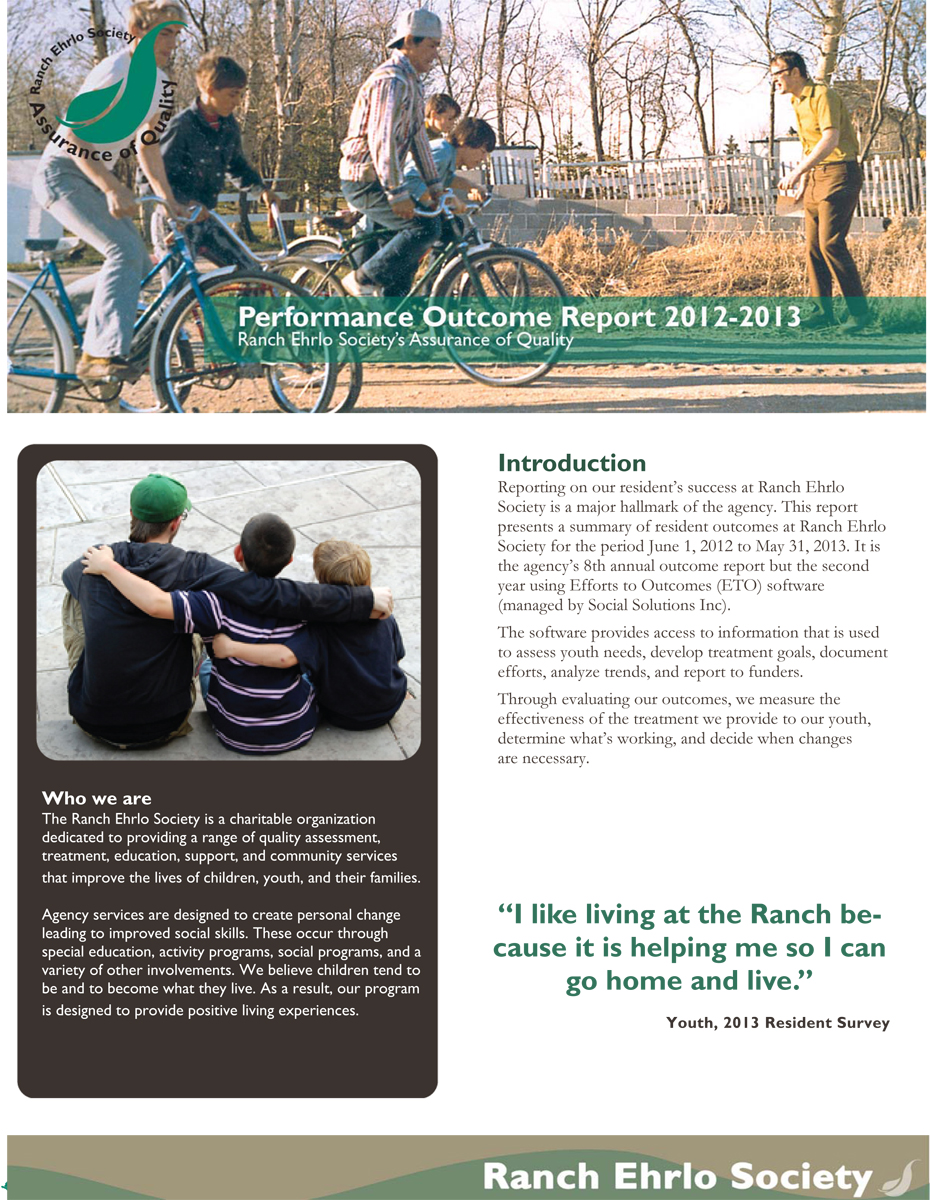Outcomes for 2012-2013
 Because of confidentiality and privacy policies, the youth coming into the care of Ranch Ehrlo Society often remain nameless and faceless, but annual surveys and outcome reports help stakeholders understand who these children are, how they feel, what they think, and how they progress in treatment.
Because of confidentiality and privacy policies, the youth coming into the care of Ranch Ehrlo Society often remain nameless and faceless, but annual surveys and outcome reports help stakeholders understand who these children are, how they feel, what they think, and how they progress in treatment.
Of course statistics are just numbers; they don’t show the face of a youth who has been through a dozen foster homes or a child who has reached “the end of the line” by age 11. These surveys and outcomes are designed to help Ranch Ehrlo Society harness an understanding of the youths’ thoughts, feelings, and perceptions of their lives and experiences at Ranch Ehrlo.
The Performance Outcome Report 2012-2013 shows a summary of youth and young adult experiences and accomplishments at Ranch Ehrlo Society for the period June 1, 2012 to May 31, 2013. The data collected is used to assess youth needs, develop treatment goals, document efforts, analyze trends, and report to funders.
“Through evaluating our outcomes and surveys, Ranch Ehrlo is able to measure the effectiveness of the treatment we provide to our youth, determine what’s working, and decide when changes are necessary.” commented David Rivers, senior director of quality improvement at Ranch Ehrlo.
So, who are the youth?
- 56% of the residents were between the ages of 11 and 15
- 39% were between the ages of 16 and 20
- 58% of the discharged residents were First Nation
- 61% of residents at the Ranch were male and 39% were female
- Top five reasons for admission to Ranch Ehrlo were: family functioning, school, judgment, social functioning, and adjustment to trauma
And, what do they have to say?
- “I do want to go home, but I want to get better first.”
- “They are making sure we have a roof over our head, a soft bed, enough to eat, and they love us.”
- “I’m happy. The staff are doing one heck of a job.”
- “People here care about you and want you to be better. They treat you how you want to be treated.”
- “When I leave I will be a better person.”
- “I don’t like that I have to be away from my family (and) my friends from home.”
- “Too many rules.”
- “(I don’t like)…living with people who have lots of problems.”
The stories that bring each child to Ranch Ehrlo Society are unique to each individual, but the goal is all the same. We strive to support and encourage youth to discover and achieve their full potential.
Read the full performance outcome report here.


